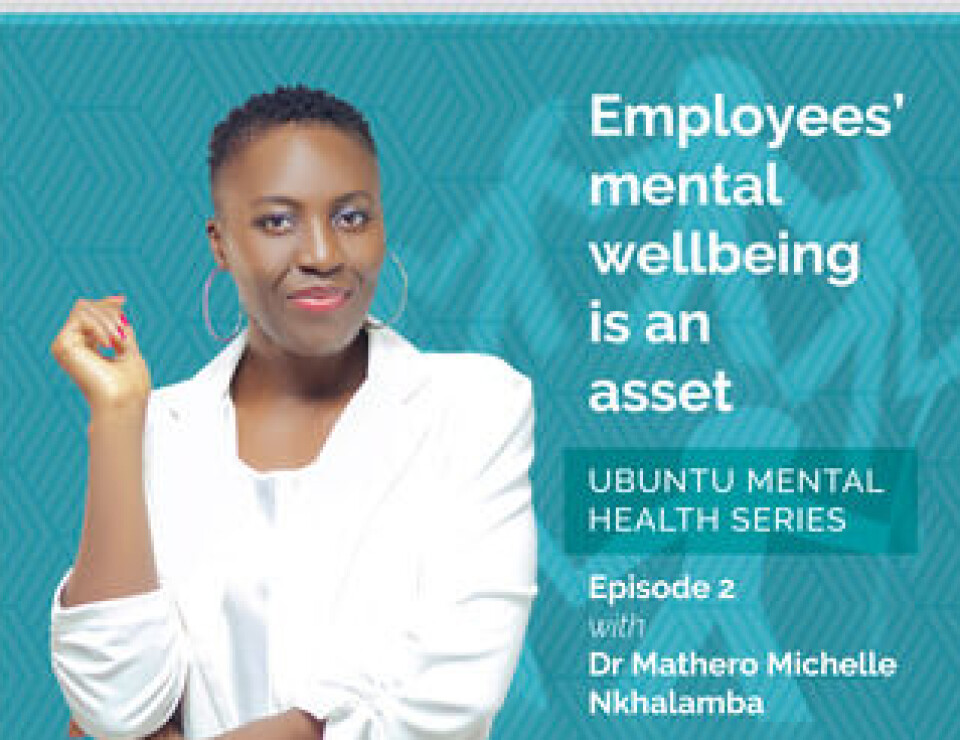Copyright : Re-publication of this article is authorised only in the following circumstances; the writer and Africa Legal are both recognised as the author and the website address www.africa-legal.com and original article link are back linked. Re-publication without both must be preauthorised by contacting editor@africa-legal.com
Employees’ mental wellbeing is an asset

In the second episode of the Ubuntu Mental Health Matters Series with Dr Mathero Michelle Nkhalamba, she speaks with Africa Legal about self care and coping mechanisms.
There are various ways to mitigate the impact of trauma and help process it safely, says Dr Mathero Michelle Nkhalamba, an esteemed chartered psychologist from Malawi. One of these is through vicarious resilience – listening to peers in the workplace who have gone through a traumatic experience, and being inspired by their mental ability to overcome a stressful situation.
However, although peer support is helpful as this can be encouraging, she says it could also lead to a toxic workplace culture if there is no balance, especially if success is achieved to the detriment of one's mental health and welfare.
Nkhalamba warns against pushing towards an unhealthy extreme where winning is prioritised instead of a person’s wellbeing.
Instead, she encourages peer support that involves teaching and mentorship as this is more empowering.
Nkhalamba dispels the notion that perfectionism is a positive trait, as it is an unsustainable standard.
“It really is a relentless drive for a standard that you will never meet. It's also very personal, because you judge yourself based on that standard, on your ability to reach this standard. A lot of people who are perfectionists often present with issues of anxiety, depression, because they're always worried,” she explains.
In the podcast she provides detailed advice for self care practices, such as exercise, nutrition and sleep which are fundamental to good brain health, and recommends having a sleep ritual. Browsing through your cell phone or reading a book while in bed could stimulate the brain, instead of relaxing it, she says.
Nkhalamba points out that the choice of food also impacts your quality of sleep and suggests eating lighter meals in the evenings.
Emphasising that nutrition and exercise are the cornerstones of mental health, Nkhalamba explains that exercise restores the balance between physiology and hormones. “What you do to your body and what you put into your body has a direct impact on your brain,” she shares.
Debriefing is another coping mechanism. “It’s talking about how you have been impacted, acknowledging what you're feeling and discussing how you could deal with it,” explains Nkhalamba.
The hour-long conversation wraps up with Nkhalamba talking listeners through live mindfulness techniques which are sure to get even the most anxious person relaxed.
Click here to listen to the full podcast on Soundcloud, Spotify, Apple Podcasts and Amazon Music.
To join Africa Legal's mailing list please click here
